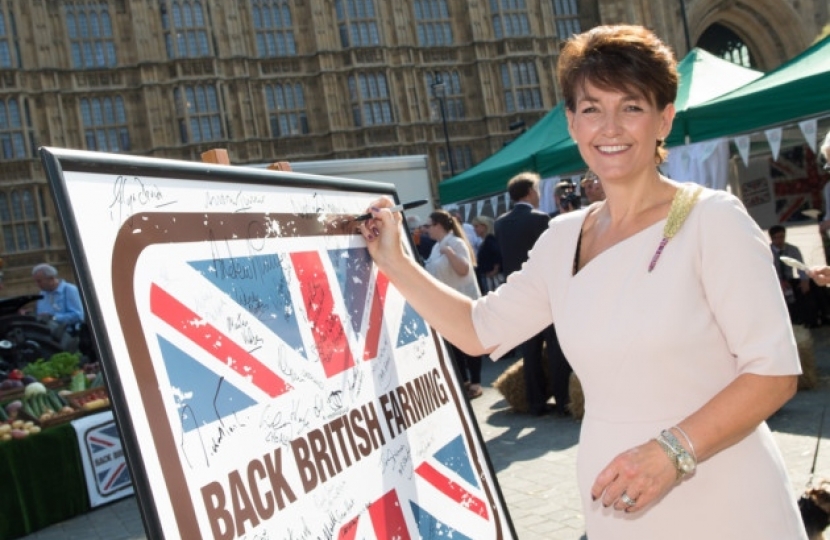
When any one of us visit the supermarket and choose to buy British produce, we invest in some of the highest quality food, environmental and animal welfare standards in the world. For instance, the Government recently outlined measures to ensure all slaughterhouses were fitted with CCTV in order to safeguard animal welfare standards. What’s more, at the tills you may be charged five pence for a carrier bag; a measure which has reduced plastic bag distribution by nine billion (83% fall) and raised £95 million towards environmental and education causes.
Reinforcing standards in this way is not just about doing the right thing; it is about preserving the reputation of our food and farming sector and letting environmental science lead the charge. Markets and consumers around the world, including China, see British brands and their guarantee of quality production standards, as attractive. Furthermore, progress made in environmental science can guarantee we take the best decisions for our global futures.
However, even before joining the European Union, Britain led the world for instance, in measures protecting farm animals. Since then farm animal welfare has been a shared competence between the UK and the European Union; with EU harmonisation creating common market standards across much of the continent. This steady commitment to standards has always protected UK farmers and, alongside a raft of domestic legislation, helped them remain competitive.
However, just as the EU has been a force for good environmentally, it has held back the progress of member states; with measures like the UK Climate Change Act proving more capable of paving a ‘green’ future. What is clear is that the commitment to a sustainable future cannot just be led from a European level.
So what does this mean for our future outside the EU? This question is key for the sector and our future trade policy. The Secretary of State for Environment, Food and Rural Affairs Michael Gove, recently set out an ambitious plan to deliver a ‘Green Brexit’; committing to a full scale environmentalist agenda using opportunities outside the EU. However supportive, leading environmental groups are concerned with how this will be delivered. We may have joined the EU with leading environmental standards, but can we leave the EU and trade in the same vein?
We know the intentions of Brexit commit to leaving the Single Market and the Customs Union, though the details are yet to be agreed. As a free trading nation, UK farmers would be in direct competition with other global producers. Yet, whilst our high welfare standards are seen as a public good, compared to cheaper more accessible products, they could, and have, been seen as simply too high a price to pay. The debate in previous weeks regarding the import of chlorine-washed American chicken summarises this question, and perhaps for producers like Diaper Poultry in Stowmarket for instance, this hypothetical could be a very real concern.
An option is for the UK to push for high welfare and environmental standards in any post- Brexit free trade agreements. Vice a versa the UK could, where legally permissible, restrict imports of produce from nations with poorer standards; favouring UK farmers. However, countries out of step with our animal welfare standards may find it hard to come to an agreement with the UK. So far, no sure direction has been established.
The introduction of a system of grant support or incentive payments has been mooted; prioritising animal welfare and ensuring farmers are not penalised for progress. So far as I can see, it would be counter-intuitive to roll back our excellent standards. However, any system of grants, reminiscent of the EU’s Common Agricultural Policy, must not restrict farmers but incentivise productivity, science and the environment.
On his visit to this year’s Royal Norfolk Show, the Secretary of State highlighted the dangers of a regressive system of farming competition. He went on to say: “We can compete best on quality… people want to know the journey from farm to fork… Britain is in a very strong position because of the high environmental and animal welfare standards that we maintain.”
Therefore, by making the case for an environmental Brexit, we can help level to the playing field for farmers and for consumer costs. But, there is still a price for good food.
Innovative ideas could and should shape post-Brexit farming. However, any decision must, of course, be made alongside industry. So whilst the Government is committed to “listening”, it is good to see it thinking and looking ahead also.
Published in the East Anglian Daily Times